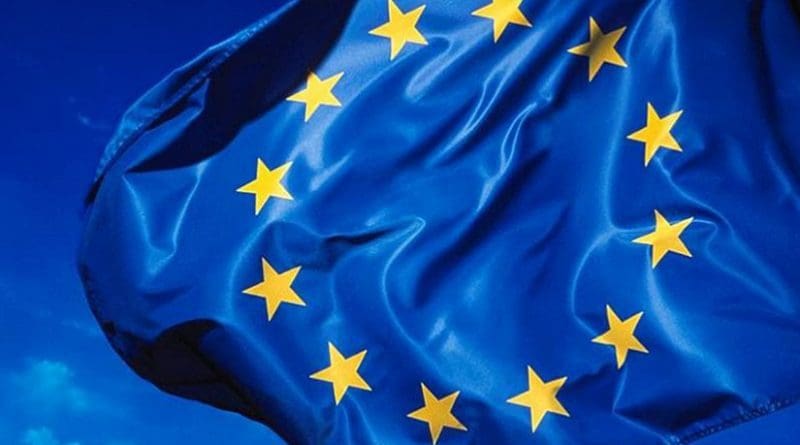EU Foreign Ministers To Ramp Up Action Against Iran, Belarus
By RFE RL
By Rikard Jozwiak for RFE/RL
European Union foreign ministers are set to almost double the number of Iranians on the EU’s visa ban list when they meet in Luxembourg on October 10.
In March, the EU blacklisted 32 Iranians with close ties to the Islamic regime from entering the EU and imposed a freeze on any assets they might have in the bloc. European foreign ministers are expected to add another 29 names to that list at their meeting in Luxembourg.
Maja Kocijancic, spokeswoman for EU foreign-policy chief Catherine Ashton, told RFE/RL that Brussels could impose stronger measures in the future.
“Given that the situation is actually deteriorating, we will look again very closely. We have seen a number of high-level cases recently,” Kocijancic said. “We will look at the situation again and assess if there is need for further action.”
At the Luxembourg meeting, EU foreign ministers are also expected to ramp up sanctions against individuals close to President Alyaksandr Lukashenka’s regime in Belarus. Currently, 192 Belarusians are barred from EU entry and three companies have also had their EU assets frozen.
On October 10, the list will have 16 new names. Most of them are judges who have sentenced individuals protesting against the regime following the flawed presidential election in December 2010. No economic sanctions are expected to be on the table yet.
Broadening Sanctions’ Scope
The current Belarus sanctions are set to expire at the end of October but there is unanimity among the 27 EU member states on prolonging them for another year.
The decision was made easier after Minsk’s no-show at the Eastern Partnership Summit in Warsaw last week. The Belarusian delegation boycotted the meeting, accusing Poland of taking “unprecedented discriminatory steps” against Belarus for not inviting Lukashenka.
There will, however, be a discussion about the criteria for the sanctions. Up to now, people involved and responsible for the crackdown on the protests that followed the December election have been targeted.
But now, EU foreign ministers are expected to look at ways to broaden the sanctions’ scope, to potentially encompass people who give economic support to the regime. A decision is not expected on October 10, as some EU member states, such as Lithuania, are wary of hurting business ties with their neighbor.
Ukraine Deal Depends On Trial Outcome
Ukraine will also loom large on the EU agenda, with a verdict in the trial of former Prime Minister Yulia Tymoshenko expected just one day later. The foreign ministers will review various responses depending on the proceedings’ outcome.
But according to sources RFE/RL has spoken to, the signing of the Deep and Comprehensive Free-Trade Area (DCFTA) agreement between Brussels and Kyiv might be imperiled if the trial’s result is viewed as unfair.
During the Eastern Partnership summit, it was agreed that the signing could take place during the EU-Ukraine summit in December and that all technical aspects should be agreed upon by the end of this month.
Poland has pushed hard for the signing to be achieved during its six-month EU presidency, which ends in December. But several countries, headed by France and Germany, could push for a slowdown in light of the Tymoshenko case.
Diplomats that RFE/RL has spoken to say that except for Poland, Ukraine doesn’t have another champion in the EU that is willing to back a quick deal any time soon. “Kyiv hasn’t really helped itself,” a council source said.
Kocijancic refused to speculate on the various options to be discussed but underlined that the EU remains concerned about the situation.
“The EU has made its position regarding the case of Yulia Tymoshenko very clear. We are against the selective use of law,” Kocijancic said.
“We have repeatedly called for a transparent trial in line with all the procedures and we have expressed our extreme concern about the developments that we have seen and we continue to do so. We are monitoring this very closely.”

